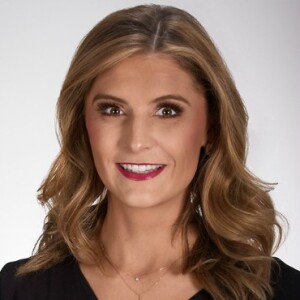MICHIGAN — An FDA Advisory Panel recommended the approval of Pfizer's COVID-19 vaccine Thursday night, providing some possible light at the end of the pandemic tunnel.
READ MORE: What you need to know after the FDA’s Advisory Committee voted yes on Pfizer’s vaccine
However, not everyone voted in favor of the Emergency Use Authorization.
FOX 17 spoke with one of those panelists, Dr. Oveta Fuller Ph.D, an associate professor at the University of Michigan Medical School. She said while she is a strong advocate for vaccines, she thinks we need a little more time before we see a mass release.
Dr. Fuller said, “My vote wasn’t ‘No, never,’ my vote was ‘No, not yet’ for an EUA.”
Dr. Fuller is an Associate Professor of Microbiology and Immunology for the university, is a virologist, and member of the STEM Initiative in the African Studies Center of the International Insitute.
Dr. Fuller was one of four, ‘no’ votes during Thursdays FDA Advisory meeting discussing Pfizer’s COVID-19 vaccine.
She said, “I was actually surprised at the vote. I thought that there would be a lot more ‘no’ votes based on the way that it was stated, so I was very surprised that it came out 17 to 4 to 1.”
Dr. Fuller began the extensive vetting process in August, before getting confirmed as an independent panel member in October.
“It’s a very long process; lots of forms, and interviews, as you can imagine,” she said, “Then you start getting the materials and you go ‘Woah, this is important stuff.’”
It’s a decision so important, Dr. Fuller wants to make sure it’s done right. That’s why she was hoping for more clinical trials before voting ‘yes,’ especially to learn if the vaccine reduces transmission of COVID-19, not just infection.
She explained, “Do we know that they are not getting infected? Do we know that if they are infected, are they shedding the virus? Can it be transmitted from them to other people?”
Dr. Fuller said she also wants more data about how an asymptomatic, yet infected, person would react to a vaccine. It’s a group she says was excluded from Pfizer’s trials.
“I’m sure those studies may be happening, but we didn’t hear about it yesterday,” she said.
She added that she feels these studies can and should go on and we’d have more answers to some important questions.
“I think we can get some of those answers in a couple months. That would give everybody more confidence,” she said.
Dr. Fuller told FOX 17 News that she wishes the panel could have voted for expanded clinical studies rather than emergency use. She added that wording and option would have still released the vaccine on a much smaller scale, potentially allowing healthcare workers to get it on a volunteer basis and be part of those studies.
She said, “Imagine that we have a river that is dammed and instead of removing the dam and letting the water just flow everywhere, let’s open a lock in the dam, and release things gradually as we learn more.”
The nearly 9-hour hearings, not only historical in fighting the pandemic, but it’s also the first time the FDA did so virtually.
Dr. Fuller said the platform presented some challenges, that would have been easier to manage in-person.
“I think the virtual platform was difficult, because we could only see what you could see. We could not see even the other colleagues on the panel and I think if anyone had actually seen me in much of this, my body language would have said that ‘I don’t think we are getting to the most germane questions here,” she said.
Time constraints and the virtual platform also made it difficult for panel members to get their questions in.
“There’s a long queue with a panel of 20 something people, if you are 10th, you may not get to ask your question,” Dr. Fuller said.
As the Pfizer vaccines moves onto the next step, Dr. Fuller said the most important thing is gaining the public’s trust, so they actually get a vaccine they believe in.
SEE MORE: MDHHS releases list of priority groups for COVID-19 vaccination
She said, “Which vaccine should I take? Can I trust that this process to get me the vaccine that has been done well, and trust my care provider or whoever is administering this, that this is the right vaccine for me, under the conditions of my life and my body.”
The endorsement Thursday is not the end of the vaccine approval process. The FDA takes the independents panels recommendation into consideration and makes their own ruling. The FDA is expected to follow the panel’s majority ‘yes’ vote.
It’s then up to the CDC to give the final go-ahead for a vaccine.
Click here to view our complete coverage on the coronavirus pandemic.




